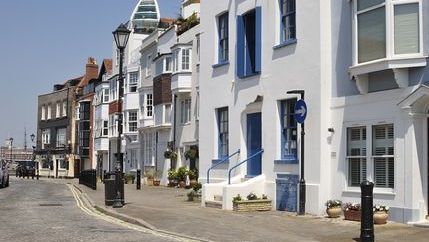
The recently published draft Development of Tourism and Regulation of Visitor Accommodation (Wales) Bill lays the groundwork for a new regime covering self-contained holiday lets, mobile homes, vessels and other visitor accommodation in Wales. This is a significant shift from reliance on general planning and safety legislation to a proactive, central licensing framework specifically designed to improve and promote the standard of regulated visitor accommodation.
Registration and licensing are not the same thing
Visitor accommodation registration with the Welsh Revenue Authority has already been confirmed and will start in autumn 2026. It applies to premises where visitors are charged for an overnight stay and any booking taken is for 31 nights or less.
Licensing of visitor accommodation will be introduced by the Bill, if passed, and will require providers of self-contained, self-catering accommodation to hold a licence and ensure their property meets new fitness for visitor accommodation standards.
Establishing registration and licensing will help raise standards by ensuring that all providers meet core safety requirements and can demonstrate the quality of their offerings. Propertymark supports this approach as a practical way to bring greater consistency to the sector and distinguish legitimate operators from those who are non-compliant.
Property fitness standards
Premises will be required to be safe, in good repair, suitable for habitation by visitors, and compliant with specified conditions. These include carrying out a fire safety risk assessment and taking fire safety precautions, maintaining valid gas and electrical safety certificates, fitting carbon monoxide alarms, and having public liability insurance in place.
The Bill emphasises the contractual duty between provider and visitor: providers must deliver accommodation that meets the fitness standard as part of the contractual arrangement.
Welsh Ministers will have broad powers to request documents or information, enter properties for inspection without notice, issue remedial notices, revoke licences, and issue fines or penalties for non-compliance.
The visitor levy
The Visitor Accommodation (Register and Levy) Etc. (Wales) Act 2025 gives councils the option to introduce a visitor levy from 1 April 2027. Rates are set at 75p per person per night for hostels/campsites and £1.30 for other accommodation.
As well as administering the register of visitor accommodation, the Welsh Revenue Authority will collect the visitor levy on behalf of local authorities.
Propertymark supports a fair and targeted visitor levy approach and endorsed that in our response to a Welsh Government consultation in December 2022, if the proposals were implemented fairly and transparently.
We will analyse the current plans to ensure that the definition of visitor accommodation is clear enough to avoid unintended consequences for private landlords.
Taxation and business-rate eligibility
Alongside the licensing regime, the Welsh Government has focused on tax and rate classification of holiday lets. Since April 2023, self-catering holiday properties in Wales must be available to let for at least 252 days per year and let for at least 182 days in the 12 months to qualify for non-domestic/business rates; otherwise, they are assessed for council tax.
A consultation (open until 20 November 2025) proposes refinements: allowing the 182-day letting requirement to be averaged over 2-3 years and permitting up to 14 days of free charitable stays to count towards the threshold.
Planning, second homes and short-term-let controls
A further dimension is the growing regulatory focus on second homes and short-term holiday lets, particularly in high-tourism areas.
Local authorities (such as Gwynedd Council) have sought to deploy Article 4 Directions to require planning permission for converting homes to holiday lets or second homes. A recent High Court judgment found one such direction unlawful due to defects in the evidence base and scope (though appeals are underway).
In addition, local authorities are using council-tax premiums of up to 150% on second homes and other surcharges as part of their strategy in high-demand areas.
Key actions for letting agents
Members should consider these practical steps to prepare for the upcoming changes to legislation.
- Audit all Welsh holiday-let properties for compliance with the fitness standards: gas/electrical safety, smoke/CO alarms, fire risk assessments, insurance and repair-maintenance logs. (See Part 3, Chapter 1, Sections 6-13 of the draft Bill for full details)
- Prepare for registration with the WRA in autumn 2026 and potential levy in 2027: set up systems for guest-night recording, define pricing strategy inclusive of levy, and communicate cost to clients.
- Monitor local authority policy, licensing rollout, and further guidance from the Welsh Government or Visit Wales — the Bill is still subject to refinement and consultation.







